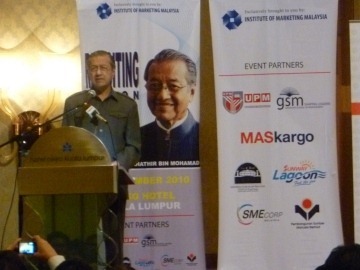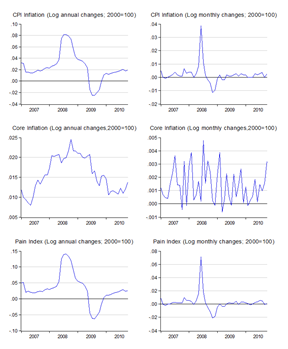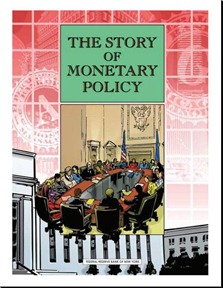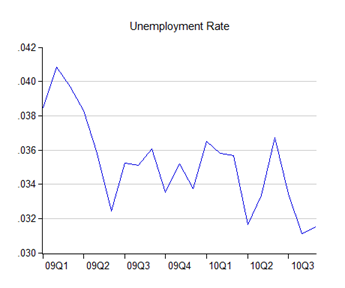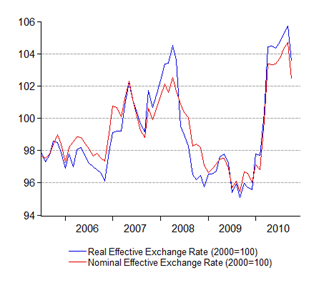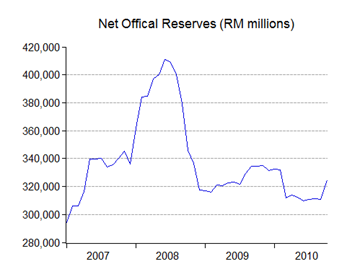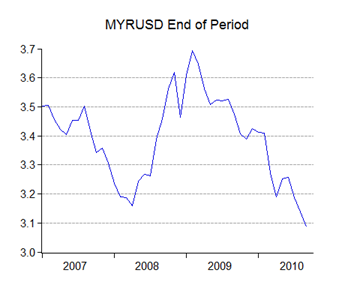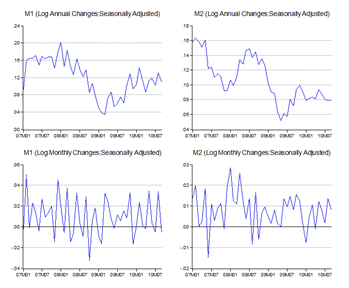Today marks the last meeting for the Monetary Policy Committee in 2010 (the announcement is due at 6.00pm local, about 10.00am GMT)). Virtually nobody is expecting a further interest rate hike at this juncture as there’s simply no call for it.
Monetary conditions over the past few months have been pretty stable, with maybe a slight concern over heightened loan growth – and even that’s not too far off the reservation. The external outlook continues remains uncertain, even as the Fed prepares for another QE blitz that may result in further cash heading to emerging markets. I’m expecting growth in 3Q GDP to flatline, so further monetary tightening (pace loan growth) isn’t warranted.
So I think this meeting will really be a non-event in terms of the current stance of monetary policy. The only thing of interest this evening is BNM’s take on the future trajectory of monetary policy, particularly what BNM plans to do if portfolio inflows exceeds the bounds BNM is prepared to accept.
As the pace of Ringgit appreciation has slowed down over the past two months, helped along by some judicious intervention, there are less worries that the Ringgit will outrun Malaysia’s economic fundamentals. But it would be interesting to see if there will be any mention of currency intervention or alternative measures that BNM might take, in the event that the Ringgit and Malaysian asset prices continue to rise at an accelerated pace.
Just don’t expect an interest rate increase to be on the menu just yet.
